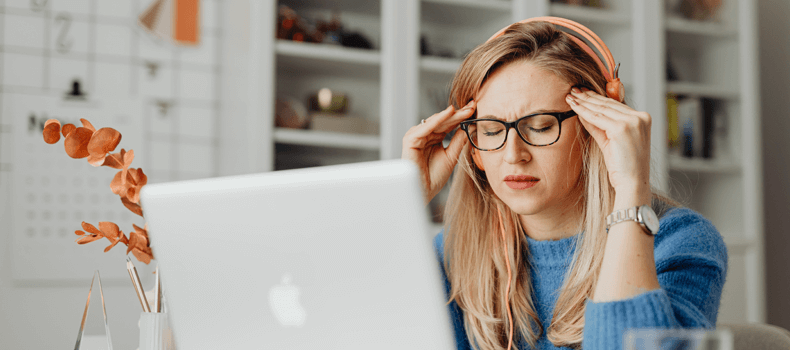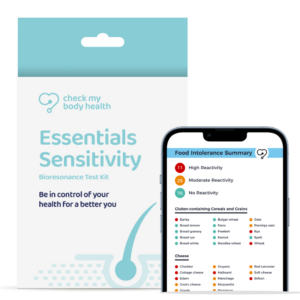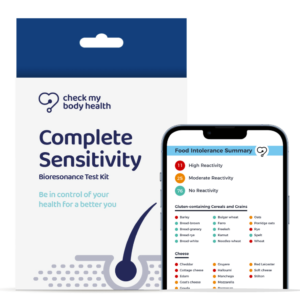Yes, coffee can absolutely cause headaches. This happens for a few reasons. Caffeine blocks a brain chemical that makes you feel tired while also constricting blood vessels. For some people, these temporary effects are enough to trigger head pain. Additionally, since caffeine is a diuretic, excessive coffee without enough water intake can lead to dehydration – another common headache culprit.
Many of us depend on coffee to perk us up in the morning, but it also has other effects on top of the obvious energy boost.
One unwelcome effect of drinking coffee is that it can lead to headaches, even when drunk in small amounts. And if this is you, there’s every chance it could be as a result of an intolerance to caffeine.
In some cases, in those without caffeine intolerance, coffee can also have the opposite effect and has been found to alleviate headaches.
The caffeine in coffee is what gives you that pick-me-up. By both blocking a chemical called adenosine – known for making you tired – and releasing adrenaline into your body, it gives you an increase of energy and alertness.
When consumed in large amounts, coffee will give many people a headache, whereas those with a caffeine intolerance will feel the effects after just a cup or less.
But what is it about coffee and caffeine that causes headaches?
How caffeine causes headaches
Caffeine may give you an energy boost, but it has complex effects on your brain and body that can sometimes lead to headaches. Here’s the breakdown:
-
Adenosine Blocker: Caffeine’s main action is blocking a brain chemical called adenosine. Adenosine normally builds up during the day, making you feel tired. When caffeine gets in the way, you feel more alert, but it can also lead to overstimulation for some people.
-
Neurotransmitter Impact: Caffeine doesn’t just affect adenosine. It also increases the production of dopamine and norepinephrine, “excitatory” neurotransmitters that boost energy but can also contribute to feeling jittery or anxious. For headache-prone individuals, these fluctuations can be triggering.
-
Blood Flow Changes: Caffeine constricts blood vessels in your brain. But, this effect is temporary. When the caffeine wears off, those blood vessels dilate again (get wider). This sudden shift in blood flow is a major headache culprit.
-
Dehydration Risk: As you mentioned, caffeine is a diuretic, making you urinate more. Excessive coffee intake, without enough water to compensate, can lead to dehydration – another common headache trigger.
-
The Importance of Individuality
It’s crucial to remember that not everyone reacts to caffeine the same way. Some people can drink several cups a day with no problems, while others feel headachy after just a small amount. This variation is due to factors like genetics, how fast your liver metabolises caffeine, and even your overall stress level.
How much caffeine should you have in a day?
It’s recommended that you have no more than 400 milligrams of caffeine per day, however, this can vary depending on your own tolerance levels.
Caffeine is also found in other food and drinks, so be aware that you may be ingesting it in other ways, such as with tea, soft drinks, energy drinks, and chocolate. Even decaf coffee contains a small amount of caffeine.
If you suspect you may have an intolerance to caffeine, you’ll feel similar effects to drinking and eating the above as you do when drinking coffee.
Understanding caffeine withdrawal
Another reason you can get a headache due to coffee is by experiencing caffeine withdrawal.
If you usually drink a certain amount of coffee in a day, maybe as part of your workday routine, you may find that during periods when you drink less you experience a headache.
That’s because your body gets used to the caffeine in coffee, and so by taking it away you’re going to experience withdrawal symptoms – with one of those being a headache.
How to help ease a caffeine headache
If you’re feeling the effects of a caffeine-induced headache, here are ways to find relief and ways to reduce the risk next time:
Quick Fixes:
-
- Hydrate: Drink plenty of water to counteract any dehydration. Sometimes this alone is enough to ease the pain.
- Over-the-Counter Relief: Ibuprofen or acetaminophen (paracetamol) can help take the edge off.
- Get Some Rest: If possible, lie down in a dark, quiet room for a short while. This can reduce sensory overstimulation that makes headaches worse.
- Cool Therapy: Apply a cold compress to your forehead or temples. This can help constrict blood vessels and offer some relief.
Beyond Medication
-
- Fresh Air: A brief walk outdoors can improve blood flow and oxygenation, potentially easing your headache.
- Gentle Massage: Lightly massaging your temples, neck, or pressure points associated with headaches might provide relief.
- Snack Strategically: If you haven’t eaten recently, a small, healthy snack might help stabilise your blood sugar, which can sometimes contribute to caffeine-related headaches.
Focus on Prevention
-
- Gradual Intake: Instead of several cups at once, space out your coffee consumption throughout the day. This limits those spikes and crashes in caffeine levels.
- Hydration is Key: Even if you feel fine, drink water regularly when enjoying coffee. Don’t wait until you’re thirsty.
- Food Matters: Avoid drinking coffee on an empty stomach, as this can worsen its effects.
- Know Your Limit: If you notice that even a small amount of caffeine triggers headaches, it’s worth considering whether reducing your intake or switching to decaf is the best option.
When to Investigate Further
If headaches occur frequently, even with the preventative tips above, it’s wise to explore the possibility of caffeine intolerance. A food intolerance test can help you get answers.
How coffee and caffeine can also help with headaches
Caffeine is also known to help ease headaches. In fact, caffeine is even found in some over-the-counter painkillers.
For those suffering a headache caused by caffeine withdrawal, a small amount of caffeine is one way to relieve a headache. In the event that caffeine helps ease your headache, it’s unlikely that you have any sort of caffeine intolerance.
What are other symptoms of caffeine intolerance?
Around 10% of the population has an intolerance to caffeine, which is either genetic or triggered by changes in the liver, and is caused by the body metabolising caffeine much slower than it does in others. If you have a sensitivity to caffeine it can have a number of effects on the body, including:
- Headaches
- Heart palpitations
- Rapid heartbeat
- Anxiety
- Insomnia
- Restlessness
- Tremors
If you experience any of these effects after drinking coffee or any other caffeinated drinks (or food) then it’s likely that you have an intolerance to caffeine.
How can I see if I have a caffeine intolerance?
If you suspect you have a caffeine intolerance, it’s important to get this confirmed so you know what you can and can’t consume. Pinpointing a food intolerance is the first step in ensuring you stay healthy and don’t risk aggravating it or experiencing any of the unpleasant side effects,
It’s possible to test whether or not you have a caffeine intolerance at home by ordering a food intolerance test.
Drink coffee in moderation
Even for those of us without a caffeine intolerance, coffee should still be drunk in moderation, making sure not to exceed the recommended 400 milligrams per day – which is roughly 4 cups.
It can be easy for our bodies to become dependant on the energy boost coffee gives us, which can also lead to withdrawal when it’s taken away. If coffee is giving you a headache, try limiting your intake or switching to decaf, and take a food intolerance test to check if you have an intolerance to caffeine.
If you think you may have caffeine intolerance, browse our tests so you can check for yourself at home.
Written by Bev Walton, BSc Nutritional Science
I achieved a First-Class Honours degree in BSc Nutritional Science, Nutrition Sciences from the University of Reading and now have over 35 years experience in all types of cuisine, dietary plans, recipe development, health and nutrition. I have been writing for over 10 years for magazines and websites as well as ghostwriting for ebooks, Kindle and fully published books. I’m also a proud member of the Guild of Food writers.




